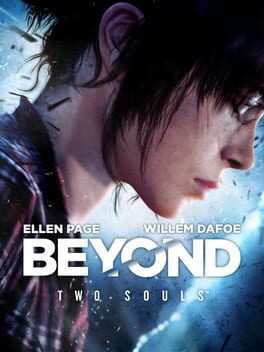While the scrambled narrative is more ambitious and dramatically effective than Heavy Rain that fact also makes this all the more dull to power through even if it has a semblance of experienced maturity in how it handles its characters and storyline. Trade-offs, I guess. It loses the cornball excitement of Heavy Rain but gains one of my favorite protagonists in video games with Elliot Page's Jodie, who plays the role with such intimate rawness and emotional range that despite the game's overwrought melodrama left me near tears multiple times throughout from his performance alone. It's a character that's properly lived in and the game gives plenty of development (albeit perhaps a bit too schematic for my liking) for her to be feel fleshed out. She stands as a refreshingly flawed, vulnerable, but empowered PS3-era icon and I admire Cage's commitment to dressing the structure with emotional stakes rather than cheap thrills. The game certainly indulges itself in more ways than one with said structure, with the majority of child Jodie's chapters feeling superfluous. I wish the game was more episodic hijinx such as "Homeless", "The Dinner" and "Navajo", which showcased the game's strengths as it develops Jodie through her interactions with others rather than just feeding the player forced chapters where we actively partake in the trauma she underwent as an adolescent ("The Party" and "Like Other Girls" are eyerollingly OTT). Dafoe's Nathan is also woefully underdeveloped but an interesting foil to the game's thematic exploration of the afterlife and the spiritual connections that keep these characters tethered to sanity. Wish it went farther with these ideas but as a whole this was more focused on Jodie than anything else so in that I appreciate what's here despite how shaky the end product ended up being. I cannot deny the things that work and the moments that do hit are among Cage's most endearing as a visual storyteller.
